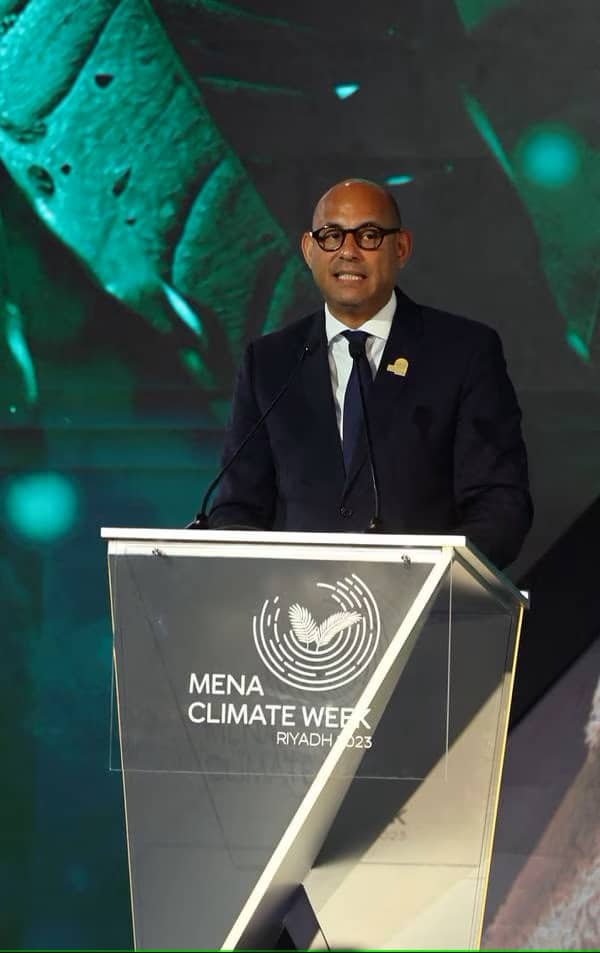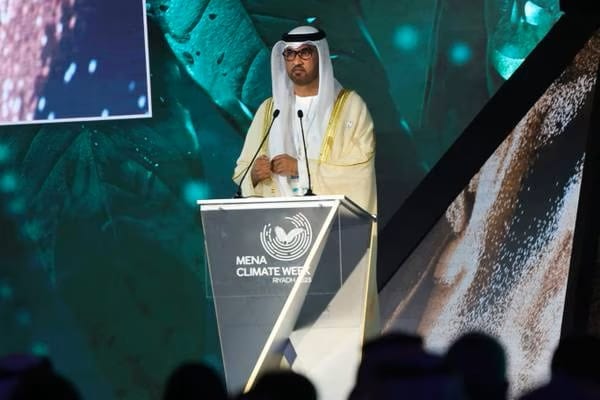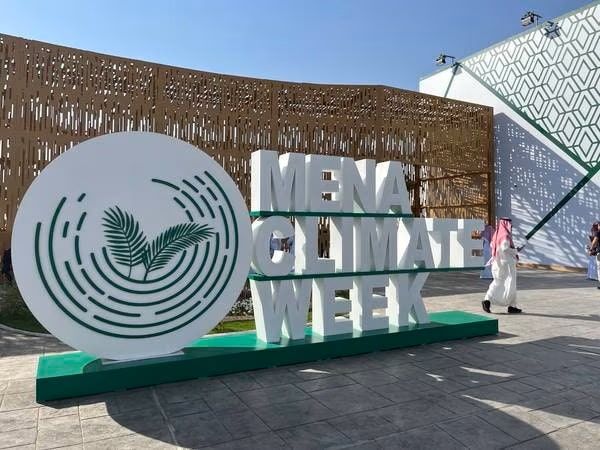MENA CLIMATE WEEK 2023 concludes in Riyadh
As the world grapples with the urgent need for climate action, global leaders have come together in a pivotal event to drive sustainable change. With a focus on the region, a transformative gathering took place last week to address the pressing challenges posed by the climate crisis. The MENA Climate Week (MENACW) 2023, which brought together government officials, professionals, businesses, scientists, and environmentalists, served as a catalyst for innovative solutions and collaboration. By fostering dialogue, sharing knowledge, and creating a united front, this gathering has set the stage for ambitious climate action in the years to come.

The annual event MENACW 2023, held from October 8 to 12 in Riyadh, Saudi Arabia, aimed to explore ways to reduce greenhouse gas emissions while adapting to the mounting fallout from the climate crisis. Hosted by the Kingdom of Saudi Arabia, this was the second of four regional climate weeks held this year. The event, which took place in Boulevard City, Riyadh, served as a valuable platform to discuss and collaborate on climate action, and built momentum ahead of the United Nations (UN) Climate Change Conference COP28 scheduled to be held in Dubai later next month. It also marked the conclusion of the first global Stocktake, which aims to chart ways to fulfil the commitments outlined in the Paris Agreement.
The event was jointly organised by the UN Framework Convention on Climate Change (UNFCCC), the UN Development Programme (UNDP), the UN Environment Programme (UNEP), and the World Bank. These organisations, along with their partners, the Islamic Development Bank, the International Renewable Energy Agency (IRENA), the UN Economic and Social Commission for Western Asia (ESCWA), and the League of Arab States, were instrumental in ensuring the success of the event.

The MENACW 2023 focused on four systems-based tracks, each dedicated to a specific theme. The first track centred around energy systems and industry, exploring strategies to transition towards cleaner energy sources and reduce emissions in the industrial sector. This track aimed to encourage collaboration between governments, businesses, and organisations to accelerate the implementation of sustainable practices.
The second track focused on cities, urban and rural settlements, and infrastructure and transport. Discussions revolved around sustainable urban planning, efficient transportation systems, and resilient infrastructure. The aim was to find innovative solutions for cities and settlements to become more sustainable and climate-resilient.
The third track addressed land, ocean, food, and water systems. This track highlighted the importance of sustainable land use, protecting oceans, promoting healthy food systems, and ensuring water security. Participants explored ways to achieve sustainable agriculture, conserve natural resources, and promote responsible water management.
The fourth track emphasised societies, health, livelihoods, and economies. Discussions centred around the social and economic impacts of climate change, with a focus on finding equitable and sustainable solutions. This track aimed to address the intersection between climate action and socio-economic development, ensuring that the transition to a low-carbon economy benefits all.
Throughout the event, participants engaged in panel discussions, workshops, and networking opportunities to share knowledge, best practices, and innovative ideas. Special sessions were also organised to showcase successful climate projects and initiatives in the region.
The MENACW 2023 served as a crucial stepping stone towards COP28 and the global Stocktake, providing a platform for collaboration and action. The event underscored the urgent need for enhanced climate action and demonstrated the commitment of the participating countries, organisations, and stakeholders to address the challenges posed by the climate crisis. By bringing together leaders from diverse backgrounds, the forum fostered a spirit of cooperation and innovation. It provided an opportunity for governments, businesses, and civil societies to collaborate and accelerate their efforts in reducing greenhouse gas emissions and adapting to the impacts of the climate crisis.
As global attention turns towards COP28 and the global Stocktake, the outcomes and discussions from MENACW 2023 will contribute to shaping the international climate agenda. It is through collaborative events like these that we can make significant progress in addressing the urgent environmental challenges we face and creating a sustainable future for all.

